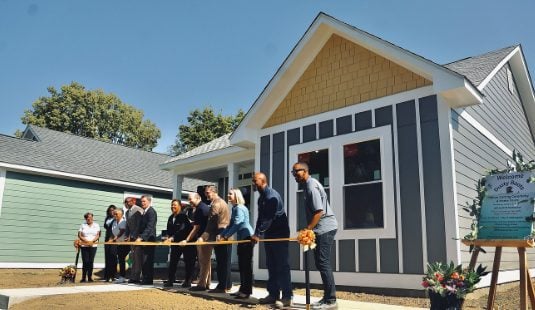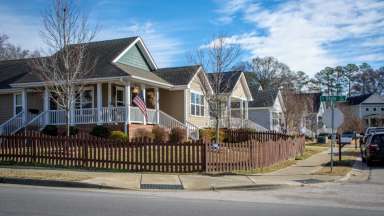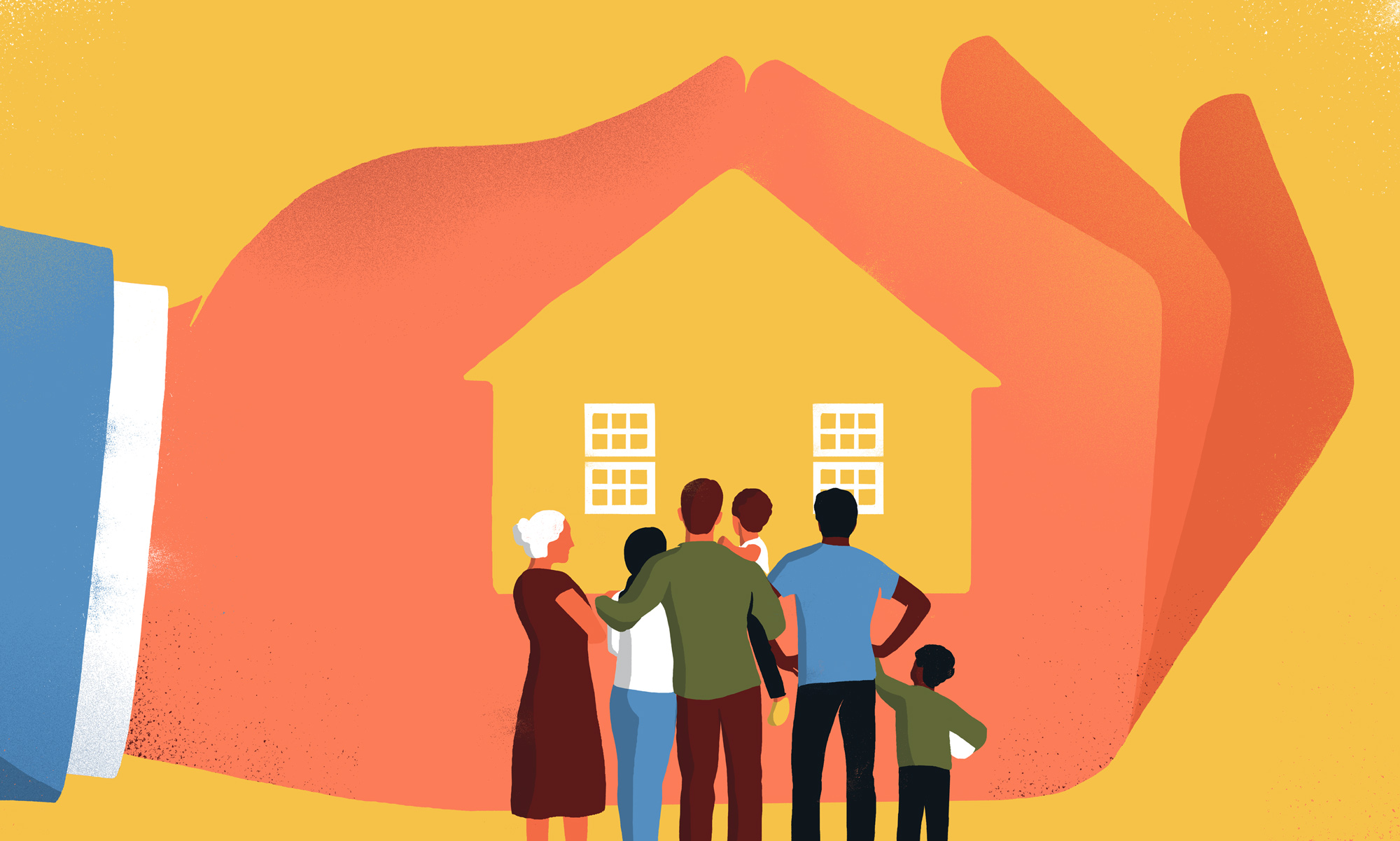Inexpensive Homeownership Options for First-Time Homebuyers
As the real estate market proceeds to advance, first-time property buyers face special difficulties in protecting economical homeownership options. Different sources, consisting of entitlement program programs, low-down-payment mortgages, and targeted gives, have arised to reduce economic stress. These campaigns not only help with homeownership yet also foster community security and financial growth. Browsing these alternatives can be complex, and understanding which pathways are most valuable calls for mindful consideration. What approaches can possible homeowners employ to maximize their opportunities in this landscape?
Government Aid Programs
Federal government assistance programs play a critical role in making homeownership achievable for many individuals and family members. These programs aim to minimize the economic worry connected with buying a home, specifically for newbie buyers. By offering financial assistance, gives, and tax obligation rewards, government efforts aid connect the void between climbing real estate costs and the acquiring power of prospective home owners.
Numerous programs are readily available at the federal, state, and regional levels. The Federal Housing Administration (FHA) gives insurance coverage on fundings, allowing lenders to supply a lot more positive terms, such as lower down repayments and reduced rate of interest rates. In addition, state and city governments commonly have their very own campaigns, which may consist of deposit assistance programs, homebuyer education training courses, and desirable home loan terms.
These programs are designed to resolve the special challenges dealt with by reduced- to moderate-income family members, including restricted cost savings and credit report. By cultivating an environment where homeownership is extra obtainable, entitlement program programs not just support individual goals but likewise add to area stability and economic development. Recognizing and making use of these sources can significantly enhance the potential customers of effective homeownership.
Low-Down-Payment Home Loans
For lots of aspiring homeowners, low-down-payment home mortgages provide a practical path to homeownership, particularly in today's difficult real estate market. These mortgage alternatives typically call for deposits varying from 3% to 5%, making it less complicated for new purchasers to get in the market without the worry of conserving for a considerable down settlement.
Different lending institutions provide low-down-payment programs, consisting of conventional car loans backed by Fannie Mae and Freddie Mac, as well as government-backed alternatives like FHA lendings. These home mortgages are designed to suit individuals with limited financial savings while still supplying competitive rate of interest. Significantly, they enable customers to keep more cash money for various other essential expenses, such as moving costs, home examinations, and prospective renovations.
Nonetheless, possible house owners ought to be conscious of the compromises associated with low-down-payment mortgages. A smaller sized deposit may result in greater monthly payments and the need of private home loan insurance coverage (PMI), which safeguards lending institutions in situation of default. As a result, it is essential for newbie purchasers to perform detailed research study and speak with mortgage professionals, guaranteeing they pick a low-down-payment choice that straightens with click reference their long-term monetary objectives. Affordable Homeownership.
First-Time Homebuyer Grants
Lots of first-time homebuyers discover that grants can dramatically alleviate the monetary concern of purchasing a home, complementing low-down-payment home loan alternatives. These grants, commonly offered by state and neighborhood governments or non-profit companies, use economic help that does not call for payment, making them an attractive alternative for those going into the housing market.
Qualification for first-time buyer gives generally depends on earnings, credit reliability, and the purchase cost of the home. Many programs are created to aid low- to moderate-income family members, ensuring that assistance gets to those that need it most. The application procedure usually entails documentation of you could look here financial standing, buyer education programs, and occasionally even a commitment to remain in the home for a particular duration.
The quantity helpful varies widely, with some grants giving several thousand dollars to aid cover closing costs or deposits. Investigating available grants in your location is important, as programs frequently transform and might have certain demands. By leveraging these economic resources, first-time property buyers can make homeownership much more obtainable, ultimately achieving their desire for having a home while reducing the preliminary monetary pressure.
Cutting-edge Neighborhood Initiatives
Ingenious neighborhood efforts are playing a critical duty in broadening budget friendly homeownership choices for citizens. These efforts typically entail joint initiatives between city governments, charitable organizations, and private market stakeholders to create sustainable housing solutions customized to neighborhood needs.
One significant approach is the establishment of community land counts on (CLTs), which permit residents to buy homes while the land remains possessed by the trust. This design helps keep affordability over time and why not find out more prevents speculative cost increases. Additionally, CLTs frequently provide educational resources and support solutions to empower first-time buyers.
One more reliable effort is the advancement of mixed-income real estate jobs, which blend inexpensive devices with market-rate homes. This approach promotes inclusive communities and reduces the preconception commonly linked with low-income real estate. In addition, city governments are progressively sustaining zoning reforms to promote the building of accessory residence units (ADUs), which can offer additional rental earnings for house owners while raising housing schedule.

Tips for Budgeting and Saving

Following, develop a devoted cost savings account specifically for your future home purchase. Goal to conserve a percentage of your revenue constantly, preferably 20% or even more, to build a significant deposit. Utilize automation devices, such as straight down payment or automatic transfers, to make saving much easier and more regular.
In addition, take into consideration taking on the 50/30/20 policy: assign 50% of your revenue to demands, 30% to wants, and 20% to cost savings and financial obligation settlement - Affordable Homeownership. This method promotes balanced economic wellness

Final Thought
In recap, affordable homeownership alternatives for first-time property buyers encompass different resources such as government support programs, low-down-payment mortgages, and grants. By leveraging these monetary tools, individuals can navigate the complexities of homeownership, eventually contributing to a much more equitable real estate landscape.
As the real estate market proceeds to advance, new homebuyers face unique obstacles in securing inexpensive homeownership options. By fostering an environment where homeownership is more accessible, government help programs not just support individual desires but likewise contribute to area security and financial development. By leveraging these financial resources, novice homebuyers can make homeownership much more available, eventually accomplishing their desire of having a home while alleviating the preliminary financial stress.
In recap, budget friendly homeownership options for novice homebuyers incorporate numerous sources such as government assistance programs, low-down-payment home mortgages, and grants. By leveraging these financial devices, people can navigate the intricacies of homeownership, eventually adding to a much more equitable real estate landscape.